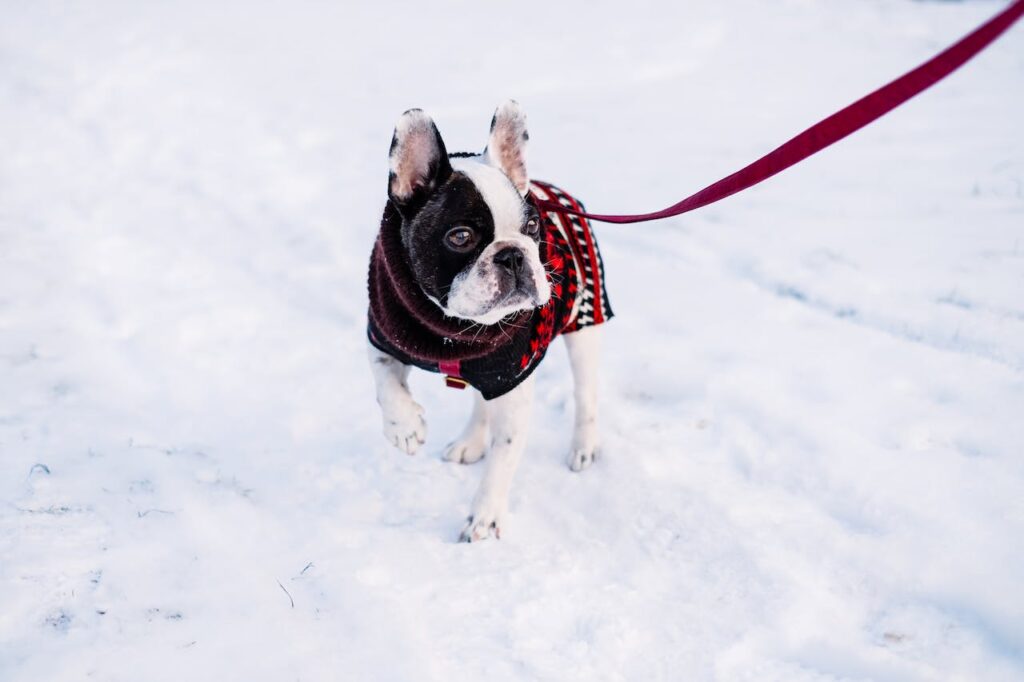4 ways to keep your dog safe in winter

Winter is an exciting time for you and your dog, with snow to play in and festive decorations all around. However, as the temperature starts to drop, it’s vital that we take extra care of our furry family members.
Cold weather can pose serious health risks to dogs, including hypothermia, frostbite, and exposure to dangerous substances. We’ve come up with a few simple measures you should take to ensure your dogs remains their happy and healthy self throughout the winter.
Provide a warm and cosy living space
Make sure that your dog has a warm and dry area in the home to retreat to when it is cold. If your heating goes off in the night, it’s important to keep the temperature of the room your pup sleeps in at around 20-22 degrees Celsius.
To do this, you should provide them with a well-insulated dog crate and cosy bedding that will ensure they maintain their body heat. Keep the furniture away from windows and doors that may be draughty and avoid keeping them in unheated areas like the garage.
Limit time spent outside
While dogs require time outside to exercise or use the toilet, you should try and minimise this when the temperature goes below freezing. Not all dogs have thick furry coats all year round, so if your pup’s coat is on the shorter side they will need a waterproof insulated coat.
You may consider protecting their paws from the harsh weather by getting them some protective footwear. This isn’t always necessary and can depend on the breed and your dog’s tolerance for the cold. Regardless of whether your dog uses footwear or not, you should still check for any ice, snow, and salt in or between their paws. Use pet-friendly balm to clean their feet to avoid irritation.
Some dogs can be quite reluctant to venture out into the cold. If you find that this is the case with yours, try to keep them occupied indoors with some fun games and toys. That way they still get to exercise and will keep themselves warm.
Adjust their diet and nutrition
Since dogs typically burn more calories to maintain body temperature in the winter, you may need to increase their calorie intake. However, as outdoor activities will likely be limited at this time, it’s also important not to overfeed your dog to prevent weight loss.
It’s essential to monitor their weight and condition throughout the season, paying attention to their age, size, and breed, as well as the temperature and the time they spend outdoors. Consult with a veterinarian before making any significant changes to their diet so that you can determine the appropriate amount of food to give them.





